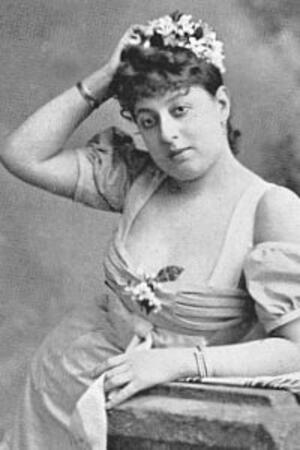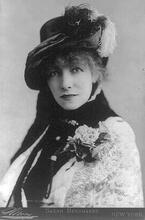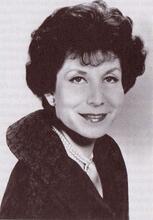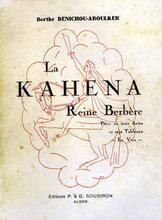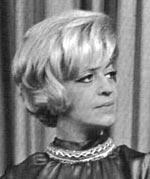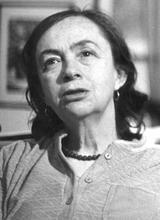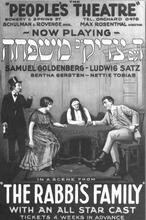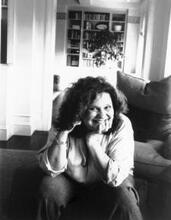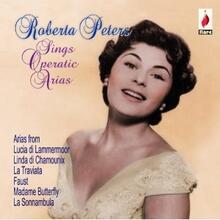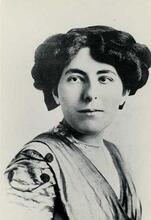Selina Dolaro
A determined and talented performer, Selina Dolaro began studying music as a child. In 1870 she made her debut in London at the Lyceum Theater in an Offenbach opera. She appeared in several other London operas, most notably as the title role in the first English version of Carmen. Dolaro also produced Gilbert and Sullivan’s Trial by Jury herself at London’s famous Haymarket Theatre. In 1873, Dolaro divorced her husband; she went on to raise her four children alone with income she derived from performing. In 1879, Dolaro arrived in New York City and made her American debut as Carmen at the Academy of Music. In addition to acting and singing, Dolaro wrote two plays, a novel, and a book of poetry. She died of tuberculosis in 1889.
A woman of gusto and talent, Selina Simmons Belasco Dolaro was an exceptional performer and single mother in late nineteenth-century England and America. Through her income from singing, dancing, acting and writing, she raised and supported four children.
Career in London
Selina was born in England on August 20, 1849, to Benjamin and Julia (Lewis) Simmons. Her father was a violinist at one of the city’s opera houses, and as a young girl Selina received music instruction from his masterful colleagues. Barely a teenager, she entered the Paris Conservatory to continue studying music. In 1865, just sixteen years old, she married an Italian Jew of Spanish descent named Isaac Dolaro Belasco in Upper Kennington, England. Isaac’s ancestral family name was Miara D’Olivares, but the Spanish Inquisition forced his family to take refuge in the Italian town of Belasco. D’Olivares then became Italianized to Dolaro. Five years later, Selina adopted the stage name Dolaro and made her debut in London at the Lyceum Theater in an Offenbach opera. She went on to appear in several London operas, most notably in the title role of the first English version of Carmen, and produced Gilbert and Sullivan’s Trial by Jury herself at London’s famous Haymarket Theatre.
Career in New York City
In 1879, Dolaro arrived in New York and made her American debut as Carmen at the Academy of Music. Reviews were mixed. “She’s impersonating a Spanish gypsy, yet she looks neither Spanish nor Gypsy,” remarked one critic in New York World in 1880. The same year, a reviewer in New York Spirit of the Times praised her as a “plump and pleasing prima donna” who was “much more at home” performing burlesque and comic opera.
Dolaro’s sharp and witty presence followed her offstage. In 1883, the New York Herald printed a quintessentially Victorian opinion piece from a Reverend Philip Germond, in which he denounced “play-acting as a godless life.” Dolaro, irritated by his narrow-minded characterization, responded, “Had I not been ‘launched’ on this ‘godless life,’ I should probably have been a burden to some parish or perhaps launched on what I regard as indeed a godless life.” She concluded her letter inquiring, “Is it not enough that we must slave as we do to earn the means to educate and train our children so as to enable them to become useful members of society without being assailed even from the pulpit with such outrageous slander?” Fueled by her tenacity, evidenced in her charged defense of the acting profession, Dolaro’s determination was as integral to her success as her talent.
Family & Legacy
In 1873, while still in England, Selina Dolaro divorced her husband on the grounds of adultery and desertion, and she alone raised her two sons and two daughters on the income from her professional engagements. In addition to acting and singing, she wrote two plays, Justine and Fashion, neither of which was a success, a novel, Belle Demonia, and a book of poetry, Mes Amours, based on love letters she had received. Dolaro did not appear to be involved in late nineteenth-century New York’s flourishing world of Yiddish theater or other Jewish cultural spheres. After a bout with tuberculosis, which lasted several years, Dolaro died at her home in New York on January 3, 1889.
This indefatigable woman, much admired by the public, seemed to reach near icon status with her London and New York audiences. One American newspaper’s notice of her death read, “Evidently of Hebrew descent, she had a youthful beauty, the cleverness, and versatility of her race. … Both here and in London she was recognized as a veritable Queen of Bohemia.”
JE
Music and Drama, March 17, 1883
New York Spirit of the Times, February 28, 1880, and July 17, 1880, and January 26, 1889
Robinson Locke Scrapbook Collection, vol. 368. New York Public Library, Lincoln Center, NY, USA
UJE

